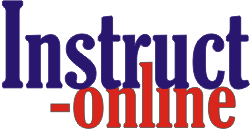
 Phone
(319) 626-2302
Phone
(319) 626-2302
Catalog Number : ncd1434
Title : CMS Infection Control
Speaker : Sue Dill
Webplay Recording Date : 9-18-2015
Webplay Price : $ 150 for two weeks viewing
Webinar Overview:
CMS received a 50 million grant to ensure compliance with the infection control standards in 2011 so this is an area of priority. If hospitals do not do this right it will also cost them a lot of money. CMS will starting reporting each hospital’s scores and reduce payments by 1% to hospitals with the highest rate of medical errors and infections starting in 2015. Hospitals that receive Medicare reimbursement have to comply with the CMS interpretive guidelines on infection control. Every hospital needs to ensure their infection control preventionist is familiar with these guidelines. The program will cover in detail the 12 page requirements.
Infection control is a very important area in today’s healthcare environment. The CDC estimates that there are about 1.7 million healthcare associated deaths in America every year and 100,000 deaths. It is estimated that healthcare acquired infections (HAIs) incur nearly $20 billion in excess healthcare costs each year. This is also why HAIs is a top priority for the US Department of Health and Human Services. The program will also discuss an action plan to prevent HAIs along with the Joint Commission changes which to help bring their standards into closer compliance with the CMS CoP regulations.
Joint Commission also focuses on infection control in their 2011 NPSG on MDROs (multi drug resistant organisms), reducing central line infections and reducing surgical site infections. Both CMS and TJC have issued recent memos on steam sterilization and flash sterilization which will be discussed. Cleaning of glucose meters between patients, single use lancets, cleaning of scopes, hand hygiene, single and multi-dose vials are just some of the hot issues being surveyed. Hospitals have to use the CDC system to report central line infections for ICUs.
Hospitals need to have a good infection control practices in place or face denial of reimbursement. CMS had 10 adverse events or hospital acquired conditions (HACs) in which hospitals would get no additional reimbursement and several involve infection control issues. Several of the 28 Never Events are infection control issues and many insurers are trying to put into hospital contracts that the hospital can not bill for these. Surveyors can cite hospitals for being out of compliance with the hospital conditions of participation (CoPs). Therefore, it is important that your infection preventionist and staff be up to date on this essential information.
Target Audience:
- Infection Control Nurse or Coordinator (infection control professionals, now called infection preventionists by APIC)
- Chief Nursing Officer
- NurseEducator
- Hospital Epidemiologists
- Infection Control Committee
- Nurses and Nurse Managers
- PI director
- Joint Commission Coordinator
- Risk Manager
- Senior leadership
- Board members
- Lab director
- Patient safety officer
- Compliance officer
- Dietician
- Maintenance Director and Staff
- Housekeeping (Environmental Services)
- Anyone interested or responsible for infection control
Webinar Objectives:
- Recall what policies and procedures are required by CMS in the area of infection control
- Describe what needs to be in the log of incidents related to infections and communicable diseases
- Discuss that CMS requires that the national standards of care and practice must be followed such as those from the CDC, SHEA, APIC, OSHA, and AORN
- List the CMS required infection control officer’s responsibilities in measuring, identifying, preventing and controlling infection
A few of the topics to be discussed:
- Who needs to follow
- Importance of infection control today
- CDC HAI and deaths
- CMS Memo to Surveyors
- Tag number A-0747 though 750 and 756
- Active program for prevention and control
- Includes infection and communicable diseases
- New definitions
- Applicability to housekeeping and maintenance
- Dietary surveillance areas
- Following standards of care; APIC, CDC, OSHA, AORN, SHEA
- Documenting surveillance activities
- Participation in PI projects and NHSN
- NNIS system and tracking MRSA and VRE
- Challenges in MDROs (multi-drug resistant organisms)
- Ambulatory and ED areas
- CDC’s HICPAC (federal advisory committee)
- Isolation guidelines, prevention pneumonia etc.
- Bioterrorism and emergency preparedness
- Compliance with OSHA
- Survey procedure by CMS surveyors
- New required policies in infection control
- Resources for infection control must be adequate
- System to identify, report, investigate and control infection
- HAI and community acquired infections
- Infection control officer’s responsibilities
- Log of incidents
- Keeping up with the literature
- Resource material on TJC 2010 NPSG on IC and changes
- Resources for complying with standards
Contact Hours:
- Nursing participants: Instruct-online has approved this program for 1.8 contact hours, Iowa Board of Nursing Approved Provider Number 339.
- All other participants: Must attend the entire Webinar and complete a Webinar critique to receive a 1.5 Hour Attendance Certificate for each program.
Refund Policy:
Full tuition is refunded immediately on request if the participant has not been sent the program materials and instructions. Once the instructions (including access codes) have been sent, a full refund will be issued only after the program runs and it is verified that the participant did not access the program
.